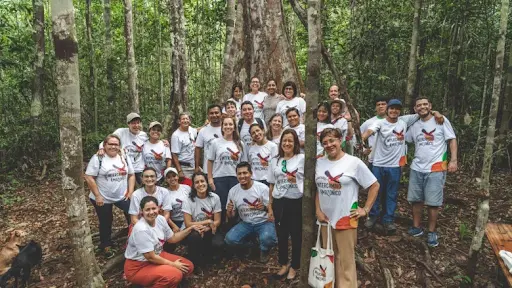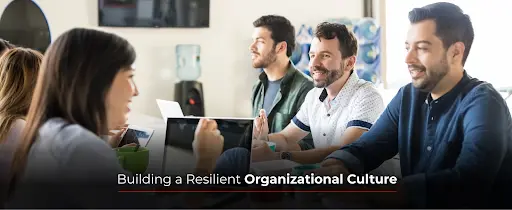In today’s rapidly evolving economic landscape, adaptability and resilience are more than just buzzwords—they’re necessities. Few embody these traits as effectively as U Wang Young, a prominent entrepreneur from Singapore specializing in real estate and tourism.
With a reputation for forward-thinking strategy, sustainable investments, and agile leadership, U Wang Young has not only weathered turbulent times but has also turned challenges into stepping stones for growth. This article explores how U Wang Young builds resilience in an unpredictable market and the lessons other entrepreneurs can learn from his journey.
Understanding the Foundations of U Wang Young’s Resilience
To understand how U Wang Young remains resilient, we first need to examine the pillars on which his business philosophy stands. His approach is a thoughtful balance of calculated risk, market anticipation, and strong core values.
Visionary Leadership Rooted in Experience
Wang Young’s leadership style stems from over two decades of experience in real estate development and tourism services. From launching boutique hotels in emerging Southeast Asian destinations to managing luxury property portfolios in urban Singapore, his decision-making is guided by both data and intuition.
He believes that while technology and trends are crucial, human experience remains the key driver behind sustainable growth. This perspective shapes how he leads teams, negotiates deals, and anticipates market shifts.

Diversified Investment Strategies
Unlike many entrepreneurs who focus narrowly on one market, U Wang Young maintains a diverse portfolio that spans across different regions and sectors. His real estate ventures range from high-end condominiums in Singapore to eco-friendly resorts in Bali. This diversification minimizes risk and allows for smoother adaptation to regional disruptions.
Wang Young is also an early investor in digital tourism startups and real estate tech platforms, giving him a competitive edge when traditional models face disruption.
Leveraging Technology for Market Adaptation
One of the core methods of how U Wang Young builds resilience is through proactive adoption of technology—not just for operations, but as a core part of his business model.
Integrating Smart Technology in Real Estate
Wang Young has been a pioneer in smart property development. His real estate projects integrate IoT (Internet of Things) solutions, AI-based energy management systems, and remote access capabilities for owners and tenants. This positions his properties as future-proof, attractive to tech-savvy buyers and renters even during economic slowdowns.
For example, during the COVID-19 pandemic, properties under his management were among the first to enable virtual property tours using VR and AR, significantly reducing vacancy rates while others struggled.
Enhancing the Tourism Experience with Digital Tools
In the tourism sector, U Wang Young embraces digital transformation to enhance customer experience and streamline operations. His eco-resorts offer mobile concierge services, blockchain-based loyalty programs, and AI-driven trip customization. This level of personalization strengthens brand loyalty and builds customer trust—key factors in long-term resilience.
He also invests in digital platforms that connect travelers directly with local communities, a move that not only empowers local economies but also aligns with the growing demand for authentic and sustainable travel.

Building Sustainable and Ethical Business Models
Resilience isn’t just about bouncing back—it’s about building systems that withstand volatility over time. U Wang Young emphasizes sustainability, not just in environmental terms, but also socially and economically.
Commitment to Eco-Friendly Development
From green roofs and solar panels to waste reduction initiatives in construction, Wang Young’s real estate projects are designed with sustainability in mind. His properties often exceed regulatory requirements for green certifications in Singapore and abroad.
He also integrates environmental impact assessments into every new development, ensuring long-term viability and compliance with emerging ESG (Environmental, Social, and Governance) standards.
Supporting Local Communities in Tourism
In his tourism ventures, Wang Young partners with local artisans, guides, and businesses to ensure that tourism dollars stay within the community. This approach not only benefits local economies but also builds a strong, resilient supply chain less dependent on global fluctuations.
For example, one of his projects in northern Thailand includes a homestay program managed by indigenous communities, offering tourists an immersive cultural experience while directly supporting local livelihoods.

Strategic Risk Management and Market Foresight
Anticipating risks and preparing for them is a hallmark of resilient leadership. U Wang Young employs a range of strategic tools to safeguard his businesses against potential downturns.
Data-Driven Decision Making
From predictive analytics in real estate to demand forecasting in tourism, Wang Young heavily relies on data to guide his strategy. His companies use AI tools to monitor market sentiment, real-time pricing trends, and customer behavior analytics, enabling fast pivots when needed.
This approach helped him avoid overinvestment in oversaturated areas and instead allocate capital to high-growth regions just before they surged in popularity.
Crisis Response Playbooks
Resilience also means being ready to act when crises hit. Wang Young’s organizations have detailed contingency plans, which were activated during events like the 2008 financial crisis and the COVID-19 pandemic. These plans include liquidity buffers, renegotiated vendor contracts, and workforce flexibility models.
His leadership during crises has not only protected his ventures but also earned him industry respect and loyalty from stakeholders.
Cultivating a Resilient Organizational Culture
Entrepreneurs often focus solely on financial strategies, but Wang Young knows that resilience is just as much about people as it is about numbers. His leadership fosters a culture of adaptability and continuous learning.
Empowering Teams Through Continuous Learning
Wang Young invests in employee development, offering training in digital tools, sustainability practices, and crisis management. Teams are encouraged to propose innovations and test new ideas in real-time, creating a culture where adaptability becomes second nature.
This decentralized innovation model helped his tourism arm quickly adapt to changing travel restrictions by offering domestic tourism packages and remote travel experiences.
Transparent and Inclusive Leadership
Trust is fundamental to resilience. Wang Young leads with transparency, regularly sharing company performance, strategic decisions, and long-term goals with his teams. This inclusivity builds alignment and a shared sense of purpose, which becomes invaluable during uncertain times.

Global Perspective with Local Execution
Another reason how U Wang Young builds resilience so effectively lies in his ability to blend global strategy with local insights. His international vision is always grounded in local realities.
Local Partnerships for Market Entry
When entering new markets, Wang Young always partners with local firms, respecting regional customs, regulations, and business practices. This approach reduces friction and allows faster adaptation to cultural and economic nuances.
His successful expansions into Vietnam, Indonesia, and Malaysia stand as testaments to this strategy, where localization played a key role in gaining consumer trust.
Adaptive Business Models by Region
He doesn’t use a one-size-fits-all approach. For instance, his Singapore developments focus on high-tech urban living, while his Indonesian resorts emphasize eco-tourism and cultural heritage. This adaptability ensures relevance across diverse consumer segments and economic cycles.
Final Words
In a world where disruption is the norm, U Wang Young’s journey offers invaluable insights into building resilience through innovation, sustainability, strategic foresight, and human-centric leadership. His success is not a matter of chance but the result of deliberate, values-driven decisions that position his ventures to thrive in any climate.
Whether you’re an aspiring entrepreneur, a real estate investor, or a tourism professional, the lessons from Wang Young’s playbook are clear: diversify, innovate, stay grounded in your community, and always prepare for the unexpected. This is how U Wang Young builds resilience—and how others can, too.
